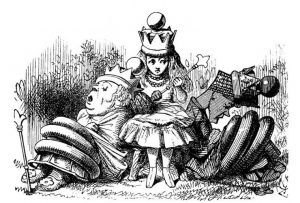Tim Maudlin in the Boston Review:
 People are gullible. Humans can be duped by liars and conned by frauds; manipulated by rhetoric and beguiled by self-regard; browbeaten, cajoled, seduced, intimidated, flattered, wheedled, inveigled, and ensnared. In this respect, humans are unique in the animal kingdom.
People are gullible. Humans can be duped by liars and conned by frauds; manipulated by rhetoric and beguiled by self-regard; browbeaten, cajoled, seduced, intimidated, flattered, wheedled, inveigled, and ensnared. In this respect, humans are unique in the animal kingdom.
Aristotle emphasizes another characteristic. Humans alone, he tells us, have logos: reason. Man, according to the Stoics, is zoön logikon, the reasoning animal. But on reflection, the first set of characteristics arises from the second. It is only because we reason and think and use language that we can be hoodwinked.
Not only can people be led astray, most people are. If the devout Christian is right, then committed Hindus and Jews and Buddhists and atheists are wrong. When so many groups disagree, the majority must be mistaken. And if the majority is misguided on just this one topic, then almost everyone must be mistaken on some issues of great importance. This is a hard lesson to learn, because it is paradoxical to accept one’s own folly. You cannot at the same time believe something and recognize that you are a mug to believe it. If you sincerely judge that it is raining outside, you cannot at the same time be convinced that you are mistaken in your belief. A sucker may be born every minute, but somehow that sucker is never oneself.
The two books under consideration here bring the paradox home, each in its own way. Adam Becker’s What Is Real? chronicles the tragic side of a crowning achievement of reason, quantum physics. The documentarian Errol Morris gives us The Ashtray, a semi-autobiographical tale of the supremely influential The Structure of Scientific Revolutions (1962) by Thomas S. Kuhn. Both are spellbinding intellectual adventures into the limits, fragility, and infirmity of human reason.
More here.
